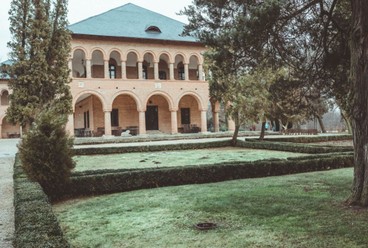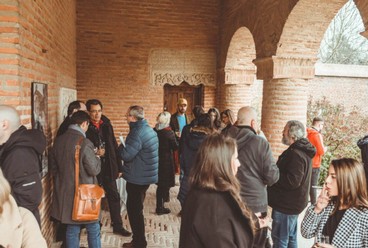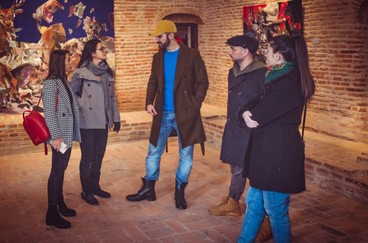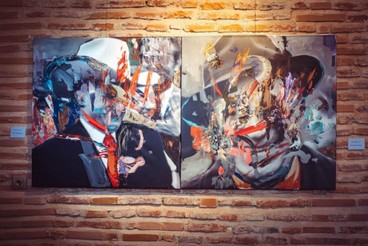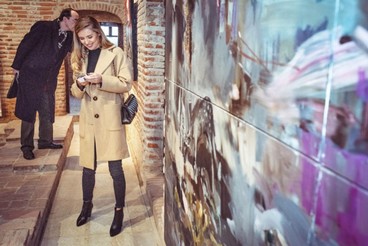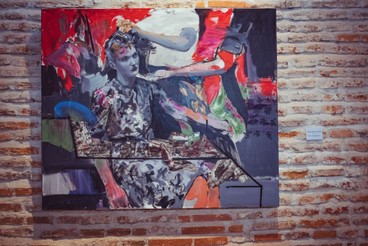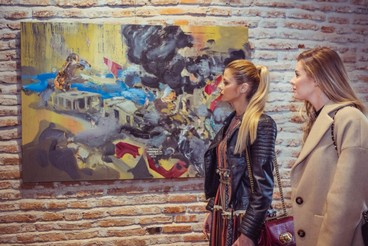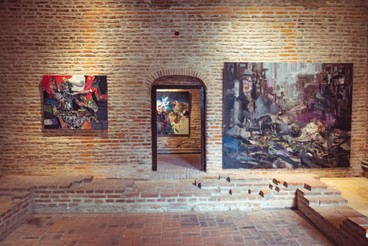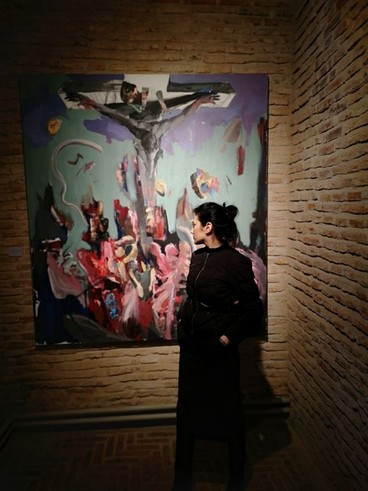PHOTOS
"Lost Paradise"
The objects in Liviu Mihai's paintings are of a symbolic nature, illustrating political, social and religious ideologies. Accross time, man found himself in collective utopias in order to be able to exist. By integrating within an already existing ideological system, or creating one of his own, the individual has always been relating to a community, imposing himself as a man of the "polis" or zoon politikon, as Aristoteles would describe.
Any ideology is based on an utopia, as history has repeteadly demonstrated. As much as a new system can be ideal, it is degenerating gradually, becoming a LOST PARADISE. It is exactly this Lost Paradise what Liviu Mihai transposes in his works, using an assembly of symbols of a personal or collective mythology. Passing through the filter of history, Liviu Mihai's works draw attention to social, political and religious paradoxes. The course of history has proven countless times this paradox illustrated by Liviu Mihai. The desire to abolish capitalism, inequality, private properties, all led to the appearance of a doctrine that aimed at the creation of the communist society. The extreme right has degenerated into nazism. In Italy, nationalism and totalitarian tendencies from the end of the First World War led to the appearance of the fascist ideology. All these collective memory histories are brought to in close-up, and Liviu Mihai filters and puts it into a new context, by introducing it in his personal histories.
